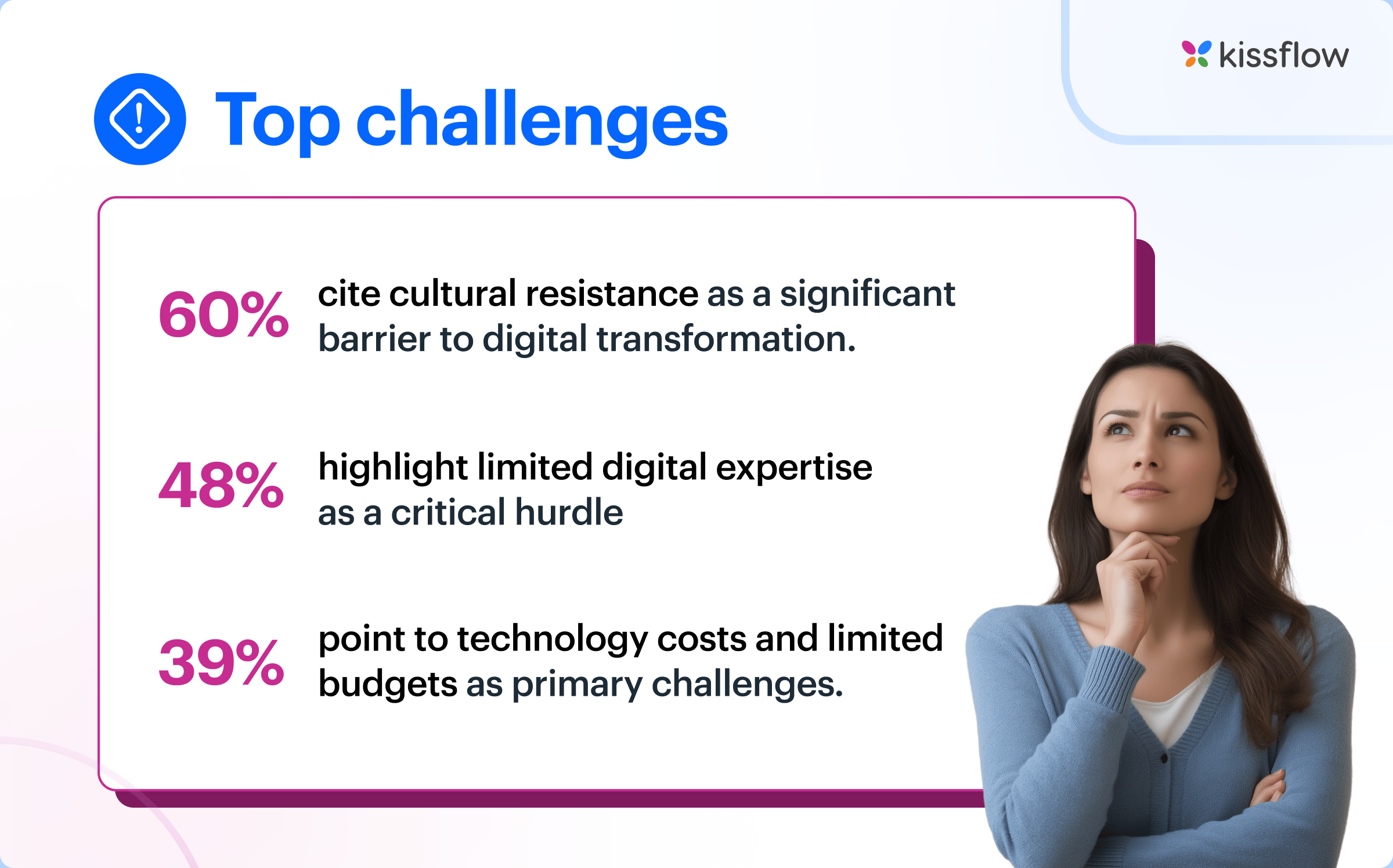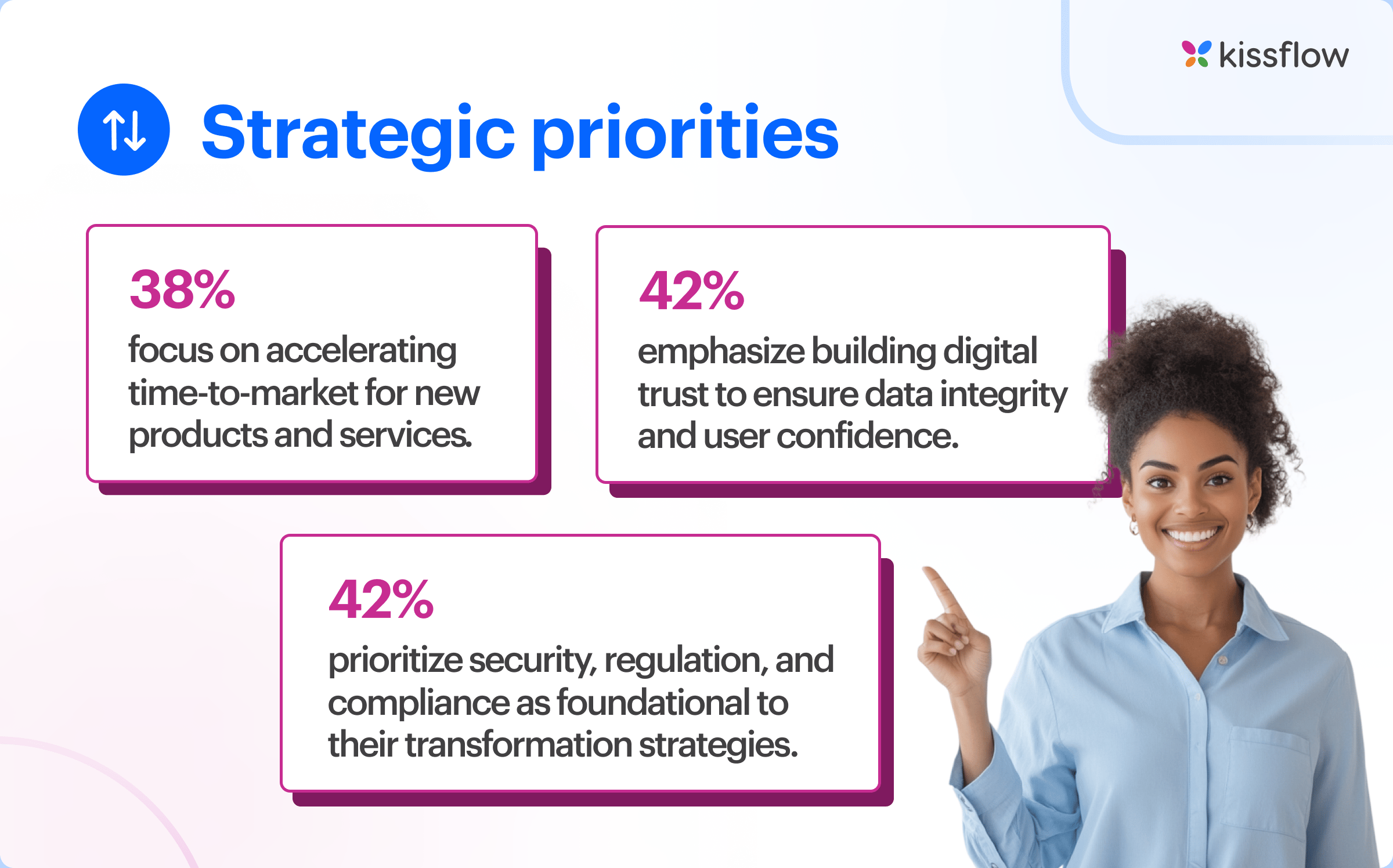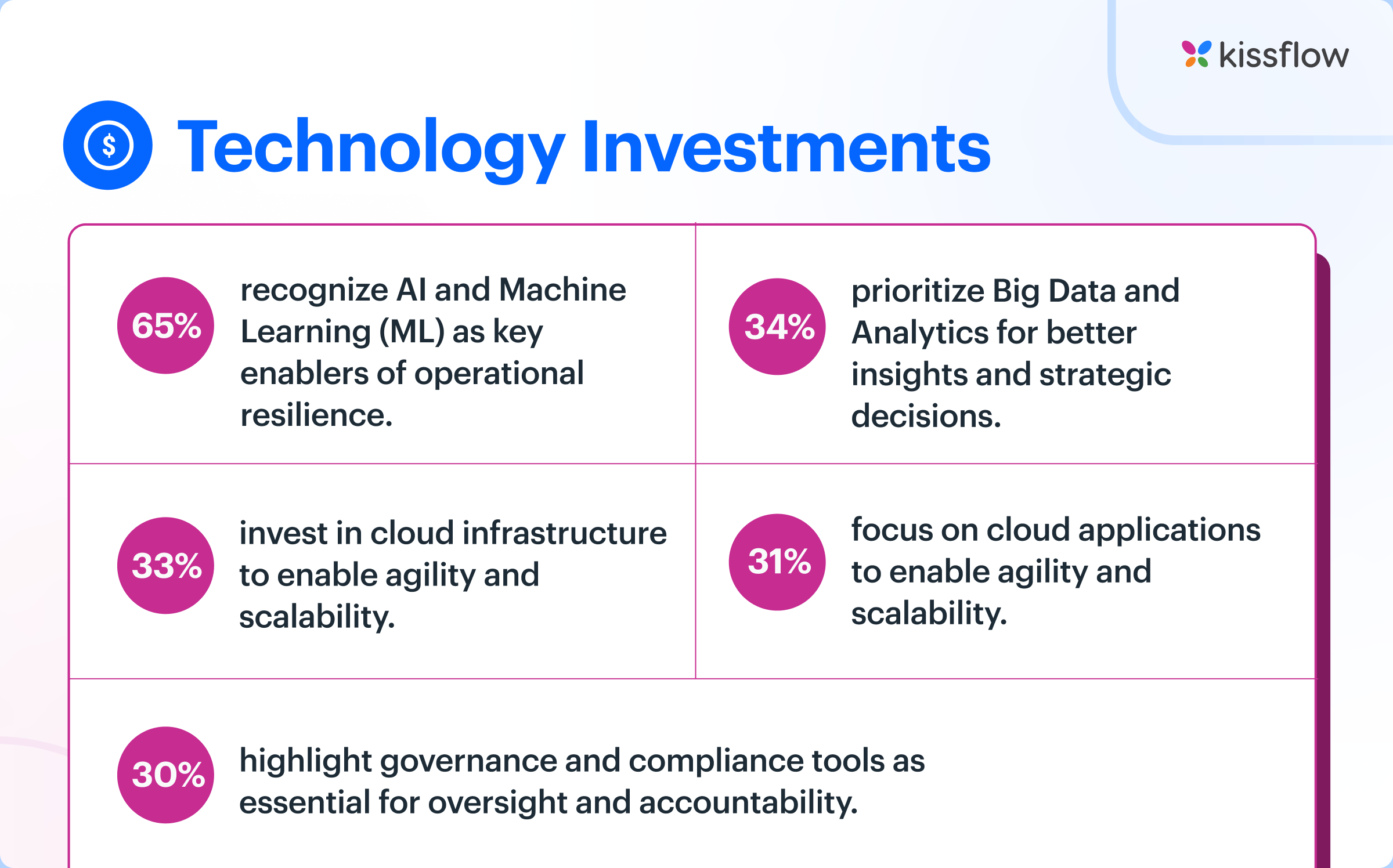The IDC CIO Forum 2024, held on 26 November, brought together leading CIOs, IT leaders, and technology decision-makers to address the challenges and opportunities in enterprise technology across Italy. With artificial intelligence (AI), workflow automation, and governance at the forefront of digital transformation, the forum highlighted how low-code and no-code (LCNC) platforms are essential for overcoming organizational bottlenecks and driving strategic outcomes as enterprises prepare for 2025 and beyond.
At the event, Kissflow highlighted how its low-code and no-code platform tackles IT backlogs, strengthens cross-department collaboration, and delivers secure, AI-powered workflows. By simplifying application development and reinforcing governance, Kissflow enables enterprises to drive agility, efficiency, and innovation as they progress to the future.
Key survey findings
We evaluated insights from surveys conducted during the event, which highlighted the strategic priorities, challenges, and technological investments that are shaping Italian CIOs' agendas.


Why Italian CIOs are turning to low-code and no-code platforms
1. Faster development cycles
Low-code and no-code platforms significantly reduce software deployment timelines. Features such as pre-built templates, visual development interfaces, and drag-and-drop functionality enable teams to create applications in weeks instead of months.
Key outcomes:
- Rapid deployment of operational and customer-facing applications.
- Increased responsiveness to market opportunities and internal demands.
2. Reducing IT backlogs
The IT backlog crisis remains a persistent challenge, with 72% of CIOs reporting delays in addressing strategic projects. LCNC platforms empower process owners to create tailored workflows while IT retains governance and compliance oversight.
Key outcomes:
- Reduced dependency on IT for routine application development.
- Enhanced productivity across business and IT teams.
3. Nurturing innovation
LCNC platforms democratize innovation by enabling business stakeholders to participate in app development. This results in greater collaboration between IT and business teams, ensuring alignment with organizational goals.
Key outcomes:
Business teams can build custom apps for internal operations without relying on IT.
Examples include:
Approval Workflows
Operations teams can create workflows for purchase order approvals, expense claims, and vendor registrations. These workflows automate routine checkpoints and reduce bottlenecks.
Document Management Systems
Teams can automate the document approval, archiving, and retrieval processes, ensuring compliance and audit readiness.
Future trends for Italian enterprises
The role of low-code and no-code platforms in reshaping Italian enterprises will only grow:
Increased adoption of citizen development: Process owners and department leaders will take charge of creating tailored solutions, driving agility and responsiveness.
AI-driven integration: Platforms will incorporate AI and predictive analytics to improve decision-making and operational efficiency.
Enhanced governance: As adoption scales, robust governance features like Access Controls, Audit Trails, Compliance Management, Integration Management, and Policy Enforcement will ensure compliance, data security, and alignment with organizational objectives.
Vertical-specific use cases: Data-driven insights across industries
Healthcare: Over 30% of healthcare CIOs prioritize AI and cloud applications to streamline patient workflows, improve care delivery, and ensure compliance with evolving regulations.
Manufacturing: 33% of manufacturing CIOs focus on cloud infrastructure adoption to optimize supply chains, improve scalability, and enhance resource allocation.
Finance: 42% of financial CIOs prioritize security and compliance tools to ensure transparency, reduce delays, and meet global regulatory standards.
Retail: 31% of retail CIOs invest in cloud applications to enable easy integration across supply chains, vendor management, and customer-facing workflows.
Education: 34% of CIOs emphasize Big Data analytics to improve decision-making, enhance operational efficiency, and optimize resource allocation.
Public Sector: 30% of public sector CIOs highlight governance and compliance tools as critical for maintaining transparency, security, and oversight across digital transformation initiatives.
Cross-Industry Insights: 65% of CIOs prioritize AI/ML technologies for smarter decision-making and operational resilience, 42% emphasize governance and compliance tools for secure digital operations, and 34% prioritize Big Data analytics to navigate complex market dynamics.
Key metrics and insights
- 73% productivity increase observed in enterprises using low-code platforms.
- 45% reduction in process cycle times achieved with workflow automation tools.
- Over 40% of CIOs prioritize AI and ML for driving organizational resilience.
To thrive in 2025, Italian CIOs and IT leaders must invest in platforms that drive agility, innovation, and efficiency. Kissflow's low-code platform equips enterprises with the tools to:
- Accelerate application development.
- Address IT backlogs with governance and security.
- Enable teams to innovate while ensuring alignment with IT standards.
Explore how Kissflow can integrate into your digital strategy. Learn more about Kissflow or Book a Demo.